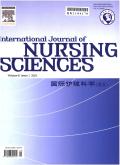心理健康护理中的替代复原力概念分析
IF 3.1
3区 医学
Q1 NURSING
引用次数: 0
摘要
目的在心理学和心理健康护理文献中引入 "替代复原力 "概念是一个非常有前途的进步。通过利用这一新颖的概念,不同领域的专家可以通过观察和学习他人的复原力,加深对如何培养个人复原力的理解。本概念分析旨在通过定义替代复原力的相关属性、前因和后果来阐明心理健康护理中的替代复原力概念。本综述专门研究了心理健康护理人员。我们在 PubMed、Medline、Cochrane Library 和 CINAHL 数据库中进行了全面的文献检索。纳入标准是有关心理健康护理中替代复原力的英文文献。该概念的属性包括移情、希望、机智、意识和灵性。前因与倾听患者的创伤叙述、自我护理、自我意识和同事的支持有关。其结果是提高幸福感、改变生活目标、适应、个人成长和增强个人复原力。结论解释心理健康护理中的替代复原力概念并确定其特征,可用于设计护理干预措施,以发展替代复原力并提高心理健康机构的护理质量。本文章由计算机程序翻译,如有差异,请以英文原文为准。
A concept analysis of vicarious resilience in mental health nursing
Objective
The introduction of the vicarious resilience concept in psychology and mental health nursing literature is a highly promising advancement. By utilizing this novel concept, experts in various domains can enhance their comprehension of how to foster resilience in individuals by observing and learning from the resilience of others. This concept analysis aims to elucidate the concept of vicarious resilience in mental health nursing by defining its related attributes, antecedents, and consequences.
Methods
Walker and Avant’s strategy for concept analysis method was used. This review specifically examined mental health nurse providers. A comprehensive literature search was performed in the PubMed, Medline, the Cochrane Library, and CINAHL databases. The inclusion criterion was English-language documents on vicarious resilience within mental health nursing.
Results
A total of 24 articles were included. The concept’s attributes were empathy, hope, resourcefulness, awareness, and spirituality. Antecedents were associated with listening to patients’ trauma narratives, self-care, self-awareness, and support from colleagues. Consequences were enhanced well-being, changes in life goals, adaptation, personal growth, and increased personal resilience. Currently, there is only one tool in the empirical reference.
Conclusion
Interpreting the concept of vicarious resilience in mental health nursing and determining its characteristics can be utilized to design nursing interventions to develop vicarious resilience and enhance the quality of care in mental health facilities.
求助全文
通过发布文献求助,成功后即可免费获取论文全文。
去求助
来源期刊

International Journal of Nursing Sciences
Nursing-Nursing (all)
CiteScore
6.10
自引率
2.60%
发文量
408
审稿时长
25 days
期刊介绍:
This journal aims to promote excellence in nursing and health care through the dissemination of the latest, evidence-based, peer-reviewed clinical information and original research, providing an international platform for exchanging knowledge, research findings and nursing practice experience. This journal covers a wide range of nursing topics such as advanced nursing practice, bio-psychosocial issues related to health, cultural perspectives, lifestyle change as a component of health promotion, chronic disease, including end-of-life care, family care giving. IJNSS publishes four issues per year in Jan/Apr/Jul/Oct. IJNSS intended readership includes practicing nurses in all spheres and at all levels who are committed to advancing practice and professional development on the basis of new knowledge and evidence; managers and senior members of the nursing; nurse educators and nursing students etc. IJNSS seeks to enrich insight into clinical need and the implications for nursing intervention and models of service delivery. Contributions are welcomed from other health professions on issues that have a direct impact on nursing practice.
 求助内容:
求助内容: 应助结果提醒方式:
应助结果提醒方式:


